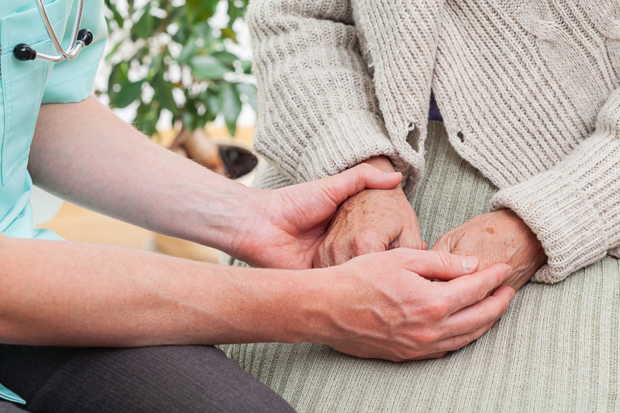‘I want to die. Please help me.’
It was 2 a.m. in the good old days when patients had 24-hour cover by their own GPs. I knew Martin well. His bladder cancer had been diagnosed the year before, but more recently it had spread to the lymph nodes in his pelvis and he had run out of effective treatments. Martin had borne his illness with stoicism so far but on this night he was in terrible pain — both physical and existential.
He asked to die more than once, and each time his request scared me, but not for any obvious reason. What alarmed me about Martin’s death wish, both at the time and now, looking back on it, is that had it been legal to kill him, I might well have done it. I would have helped him die, not through compassion but because it would have been easier: a way out for me as well as him.
The Marris Assisted Dying (No. 2) Bill wants to legalise physician-assisted suicide and, though I have witnessed enough suffering in death to understand why, I am totally convinced that we should not. Marris insists that assisted dying will only be for the terminally ill, but I have my doubts. Every state that has introduced assisted suicide for the terminally ill has ended up using it for the mentally ill or just those tired of life.
Once you accept that doctors should help patients take their own lives, it becomes impossible to deny death from those who say they’re suffering unbearably. This is not mere ‘slippery slope’ speculation, but cliff-edge reality in those countries where doctors are already allowed to give patients the ability to jump.
Marris insists, ‘The Bill would not allow euthanasia, because it does not allow anyone other than the patient to administer life-ending medication.’ But what about the patients who are physically unable to take the dose, or those who do but find that it fails to kill them? Doctors will end up dealing with patients in comas, not quite dead.
Supporters of assisted dying assume that doctors are saints, with endless reserves of compassion. They assume a doctor always acts in a patient’s best interests. But even the most dedicated doctors become tired and numb to suffering. Death itself and certainly the desire for it doesn’t keep regular hours, and I was dog-tired when I arrived at Martin’s bedside. I couldn’t honestly tell you that I wouldn’t have taken the line of least resistance in order to get back to sleep as quickly as possible. Martin lived alone and was diagnosed as terminally ill. No one would have turned a hair if the law had allowed it.
Recently I attended a small gathering of doctors in favour of assisted dying and, as I listened to them talk, I realised they all seemed scarily eager to ‘do their first one’. It’s not that they were a callous bunch so much that the idea of being able to deliver both life and death was intoxicating. It’s the ultimate power trip, in a way. The evidence from the Netherlands and from Belgium is that doctors do get mesmerised by it. One Belgian GP described helping a patient to die as ‘magical’ and admitted ‘I might lead a patient one way or the other’ when discussing assisted dying. Others just become inured to it, which is equally dangerous. An inured physician stops asking questions. He becomes more inclined to just get on with the job.
Marris supporters get very agitated when I mention Harold Shipman in the context of assisted dying. They say: ‘He has nothing to do with it. He was a murderer.’ But he was also a much loved and trusted doctor — which is why he could kill undetected for so long. If there is another Shipman out there, assisted dying will be a gift to him.
I am glad the law did not allow me to grant Martin his request in the early hours. His pain turned out to be mainly from loneliness and precipitated by a bladder infection which was successfully treated. His anguish subsequently abated. Martin had a good few months after that with no recurrence of the infection, and several months later he died peacefully in the local hospice.
Got something to add? Join the discussion and comment below.
Get 10 issues for just $10
Subscribe to The Spectator Australia today for the next 10 magazine issues, plus full online access, for just $10.
Trevor Stammers FRCGP was a family doctor for 27 years and is now a bioethicist at St Mary’s University, Twickenham.
You might disagree with half of it, but you’ll enjoy reading all of it. Try your first month for free, then just $2 a week for the remainder of your first year.














Comments
Don't miss out
Join the conversation with other Spectator Australia readers. Subscribe to leave a comment.
SUBSCRIBEAlready a subscriber? Log in